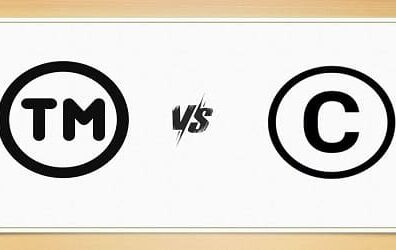DEMYSTIFYING NIDHI COMPANIES IN INDIA: A COMPREHENSIVE GUIDE

Introduction to Nidhi Companies
Nidhi companies are incorporated with the object of cultivating the habit of thrift and savings amongst its members. Nidhi company receives deposits from, and lends to, its members only, for their mutual benefit. A Nidhi Company needs to comply with such rules as are prescribed by the Central Government for regulation of such class of companies.
A Nidhi company falls under the purview of Section 406 of the Companies Act, 2013, and the Nidhi Rules, 2014. Nidhi Companies are mutual benefit societies that operate on the mutual benefit principle and are only permitted to accept deposits or funds from their members. Their activities are only limited to lending and borrowing money among their members. Every Nidhi Company’s name must end with the term “Nidhi Limited”. A Nidhi company being a public company needs to be incorporated with at least 7 members and 3 directors.
Key Features of Nidhi Companies
- Members’ Contributions: Nidhi companies accept deposits from their members, which are then used for lending and investment purposes within the company.
- Mutual Benefit: The core principle of Nidhi companies is to work for the mutual benefit of their members, which means profits earned are shared among the members.
- No External Borrowings: Nidhi companies are prohibited from accepting deposits or loans from non-members, ensuring their focus remains on serving the needs of their members.
Advantages of Nidhi Companies
- Thrift and Savings Promotion: Nidhi companies promote a culture of savings and thriftiness among their members, making it an attractive option for individuals looking to grow their savings.
- Easy Access to Credit: Members of Nidhi companies have access to credit facilities at reasonable interest rates, making it a useful source of finance for small businesses and individuals.
- Minimal Regulatory Compliance: Nidhi companies are subject to fewer regulatory requirements compared to traditional financial institutions, which can simplify their operations
Important points related to Nidhi Company
- Nidhi company should be considered as a Public Company.
- Minimum Capital should be Rs 10 Lakhs
- Nidhi Cannot issue Preference shares
- The objects of a Nidhi Company shall be only cultivating the habit of thrift and savings amongst its members, receiving deposits from, and lending to, its members only, for their mutual benefit
Mandatory Requirements After Incorporation
- The number of members shall not be less than 200.
- It should maintain Net owned funds of Rs 10 Lacs or more.
- Unencumbered term deposits shall not be less than ten per cent of the outstanding deposits.
- Ratio of Net Owned Funds to deposits of not more than 1:20
Mandatory Forms to be Filed by a Nidhi Company
- NDH-1: The Return of Statutory Compliances shall be filed to ROC within 90 days of the end of the first financial year.
- NDH-2: If the Nidhi company is unable to comply with points 1 and 4 above then it is required to apply for extension from Regional Director for compliance within 30 days of the end of the first financial year.
- NDH-3: Half Yearly Return in form NDH-3 is required to be filed within 30 days of the conclusion of each half financial year.
- NDH-4: The company is required to file the form NDH-4 for updating or declaration of status by Nidhi Company within 1 year from the date of incorporation.
Other important points in relation to Nidhi companies
- If the Nidhi fails to comply with the mandatory requirements after incorporation beyond the second financial year, Nidhi shall not accept any further deposits from the commencement of the second financial year till it complies with the provisions as prescribed in the Act.
- Nidhi company cannot open current account in the name of its members.
- Acquire another company by purchase of securities or control the composition of the Board of Directors of any other company in any manner whatsoever or enter into any arrangement for the change of its management, unless a special resolution is passed in its general meeting and it also has obtained the previous approval of the Regional Director having jurisdiction over such Nidhi.
- Accept deposits from or lend to any person, other than the members of such Nidhi.
- Pledge any assets lodged by its members as security.
- Take deposits from or lend money to anybody corporate.
- Enter into any partnership arrangement in its borrowing or lending activities.
- Issue or cause to be issued any advertisement for soliciting deposit. Provided that private circulation of the details of the fixed deposit schemes among the members of such Nidhi mentioning the words “for private circulation to members only” shall not be considered as an advertisement for soliciting deposits
- Pay any brokerage or incentive for mobilising deposits from members or for deployment of funds or for granting loans.
- Every Nidhi shall issue equity shares of the nominal value of not less than ten rupees each.
- Every Nidhi shall allot to each deposit holder at least a minimum of ten equity shares or shares equivalent to one hundred rupees. Further a savings account holder and a recurring deposit account holder shall hold at least one equity share of rupees ten.
- A Nidhi shall not admit a body corporate or trust as a member.
- A minor shall not be admitted as a member of Nidhi. However, deposits may be accepted in the name of a minor, if they are made by the natural or legal guardian who is a member of Nidhi.
Important points regarding Branches of a Nidhi Company
- A Nidhi company cannot open a branch unless it has declared a net profit after tax for continuous 3 financial years.
- After declaration of net profit after taxes for continuous 3 financial years, a Nidhi company can open upto 3 branches in its district.
- If a Nidhi company wants to open more than 3 branches or a branch outside its district, it can do it only after prior permission of the Regional Director and shall intimate the ROC within 30 days of such opening.
- A Nidhi company cannot open a branch outside its state.
- A Nidhi company cannot open a branch unless its filing of annual return and financial statements is upto date.
- A Nidhi company can close a branch only after publication of such notice of closure in a vernacular newspaper atleast 30 days prior to such closure and such notice shall be affixed at the branch to be closed for a continuous period of 30 days from the newspaper advertisement.
Important points with regards to acceptance of deposits
- A Nidhi company shall not accept deposits more than 20 times of its Net Owned Funds as per its last audited financial statements.
- A fixed deposit can be accepted for minimum 6 months and maximum 60 months. The rate of interest shall not exceed the maximum rate of interest prescribed by the Reserve Bank of India which the Non-Banking Financial Companies can pay on their public deposits.
- A recurring deposit can be accepted for minimum 12 months and maximum 60 months. The rate of interest shall not exceed the maximum rate of interest prescribed by the Reserve Bank of India which the Non-Banking Financial Companies can pay on their public deposits.
- The maximum amount that can be deposited in a saving deposit account is Rs 1 Lakh. The rate of interest shall not exceed two per cent above the rate of interest payable on savings bank account by nationalized banks.
- A Nidhi company shall not repay a deposit before 3 months of its date of acceptance at the request of the depositor. If a deposit is repaid after 3 months at the request of the depositor then no interest shall be paid on such deposit.
- In case a deposit is prematured at the request of the depositor then the rate of interest payable by Nidhi on such deposit shall be reduced by two per cent from the rate which that Nidhi would have ordinarily paid, had the deposit been accepted for the period for which such deposit would had run. Further, in the event of death of a depositor, the deposit may be repaid prematurely to the surviving depositor or depositors with interest up to the date of repayment at the rate which the company would have ordinarily paid, had such deposit been accepted for the period for which such deposit had run.
- Every Nidhi shall invest and continue to keep invested, in unencumbered term deposits with a Scheduled commercial bank (other than a co-operative bank or a regional rural bank), or post office deposits in its own name an amount which shall not be less than ten per cent of the deposits outstanding at the close of business on the last working day of the second preceding month. Provided that in cases of unforeseen commitments, temporary withdrawal may be permitted with the prior approval of the Regional Director for the purpose of repayment to depositors, subject to such conditions and time limit which may be specified by the Regional Director to ensure restoration of the prescribed limit of ten per cent.
- A Nidhi can declare maximum 25% or such higher amount as approved by the regional director as dividend. Provided that the Nidhi has complied with all the rules, has not made any default in repayment of matured deposits or interest and transfer an amount equal to dividend declared to its general reserve.
- No Nidhi shall appoint or re-appoint an individual as auditor for more than one term of five consecutive years. No Nidhi shall appoint or re-appoint an audit firm as auditor for more than two terms of five consecutive years. However, an auditor (whether an individual or an audit firm) shall be eligible for subsequent appointment after the expiration of two years from the completion of his or its term.
Important points with regards to Loans by Nidhi Company
- A Nidhi can give loans only to its members.
- The loans given by a Nidhi to its member shall be subject to the following limits:
(a) two lakh rupees, when the total amount of deposits of such Nidhi from its members is less than two crore rupees;
(b) seven lakh fifty thousand rupees, when the total amount of deposits of such Nidhi from its members is more than two crore rupees but is less than twenty crore rupees;
(c) twelve lakh rupees, when the total amount of deposits of such Nidhi from its members is more than twenty crore rupees but is less than fifty crore rupees; and
d) fifteen lakh rupees, when the total amount of deposits of such Nidhi from its members is more than fifty crore rupees.
However, where a Nidhi has not made any profits continuously in the three preceding financial years, then it shall not make any fresh loans exceeding fifty per cent of the maximum amounts of loans specified in clauses (a), (b), (c) or (d) above. A member shall not be eligible for any further loan if he has borrowed and defaulted in repayment of any earlier loans from the Nidhi.
- A Nidhi shall give loans to its members only against the following securities:
(a) gold, silver and jewellery: Provided that the re-payment period of such loan shall not exceed one year.
(b) immovable property: The total loans against an immovable property [excluding mortgage loans granted on the security of property by registered mortgage, being a registered mortgage under section 69 of the Transfer of Property Act, 1882 (IV of 1882)] shall not exceed fifty per cent of the overall loan outstanding on the date of approval by the board, the individual loan shall not exceed fifty per cent of the value of property offered as security to the Nidhi and the period of repayment of such loan shall not exceed seven years.
(c) National Savings Certificates, fixed deposit receipts, Government Securities and insurance policies.
It must be noted that such securities which are duly discharged shall be pledged with Nidhi and the maturity date of such securities shall not fall beyond the loan period or one year whichever is earlier. Further in the case of a loan against fixed deposits, the period of loan shall not exceed the unexpired period of the fixed deposits.
- The rate of interest to be charged on any loan given by a Nidhi shall not exceed seven and half per cent above the highest rate of interest offered on deposits by such Nidhi and shall be calculated on a reducing balance method. A Nidhi shall charge the same rate of interest on all the borrowers in respect of the same class of loans and the rates of interest of all classes of loans shall be prominently displayed on the notice board at the registered office and each branch office of Nidhi.
Important points with regards to Appointment of Directors
- The directors shall be member of the Nidhi.
- The directors shall hold office for a term up to ten consecutive years on the Board of Nidhi and shall be eligible for re-appointment only after the expiration of two years from ceasing to be a Director.
Conclusion
Nidhi companies provide a unique financial platform for members to pool their resources, promote thriftiness, and access affordable credit. For those looking to establish or participate in a Nidhi company, understanding the legal framework, registration process, and operational aspects is crucial. Nidhi companies can be a valuable resource for individuals and small businesses in need of financial support while fostering a culture of saving and financial responsibility.
Follow Us
Keep Yourself Updated By Following Us




